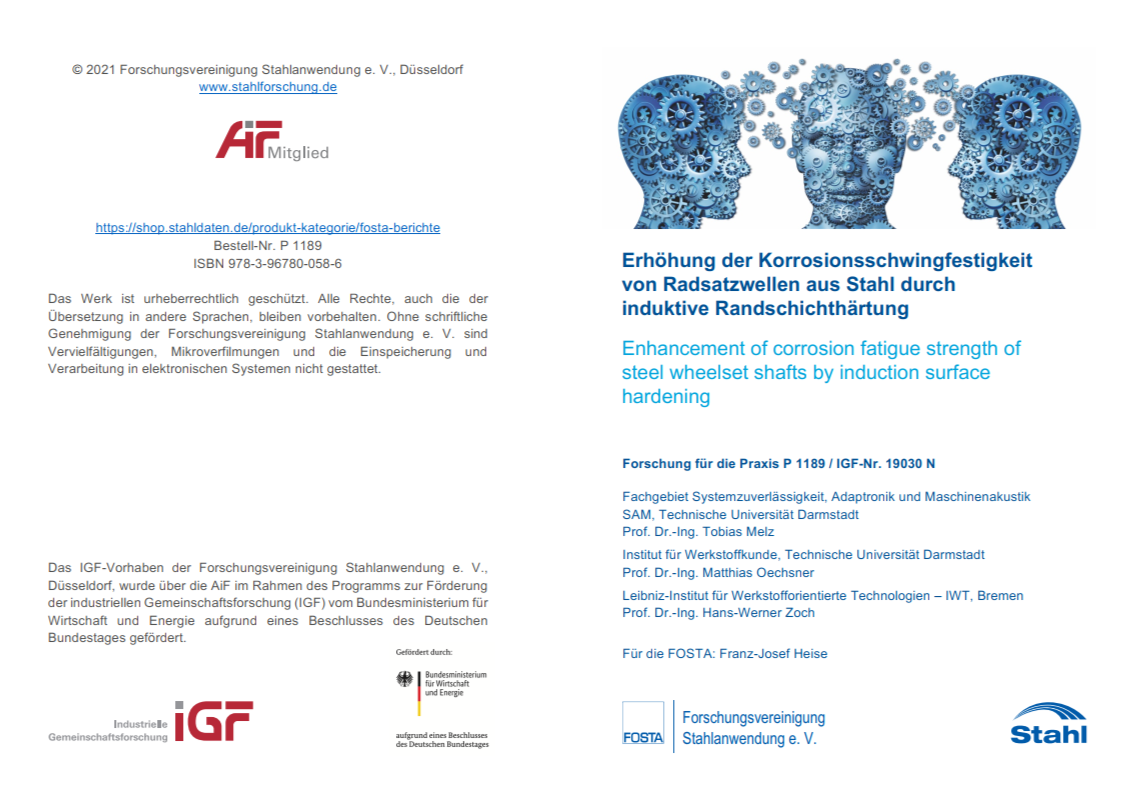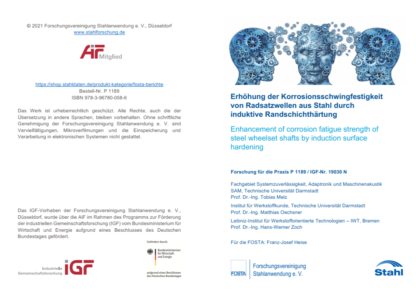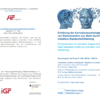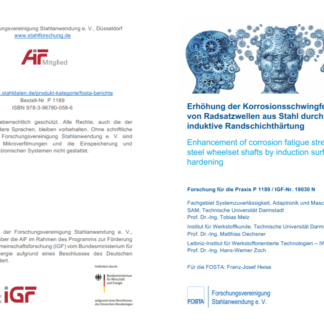Description
P 1189 – Enhancement of corrosion fatigue strength of steel wheelset shafts by induction surface hardening
As part of the research project it was shown that inductive surface layer hardening carried out with optimized process parameters significantly increased both the fatigue strength and the corrosion fatigue strength (corrosive medium 5% NaCl solution) of the material 25CrMo4 (EA4T). Using the optimized hardening parameters, a hardening depth of approx. 3 mm at 45° to the shaft in the notch could be set for the given sample geometry. Furthermore, residual compressive stresses of ES ≈ -600 MPa arise due to the post-treatment of the surface layer and the hardness in the edge area has been significantly increased with values of > 500 HV1. All of these reasons led to the fact that the surface layer developed a certain “robustness” against external mechanical damage that developed corrosion scars due to various conditions in the track bed, such as stone hits or corrosion.
On the basis of further investigations it could be shown that neither artificially milled notches with a depth of 0.3 mm nor pre-corrosion led to a negative impairment of the fatigue strength of the inductively hardened samples. Furthermore, investigations into the corrosion resistance of the material in the initial state and with inductively hardened surface layer condition were carried out by means of electrochemical investigations and supported environmental tests. The results showed that induction hardening does not negatively affect the corrosion behavior of the material.
A strategy was developed to qualify the effectiveness of induction surface layer hardening for wheelset axles under corrosion fatigue conditions using the field-relevant damage parameters. Based on this strategy, the specimens for the fatigue tests were pre-corroded in a targeted manner. In addition, the currently used corrosion protection coating was investigated for its protective ability. A transferability concept was developed to transfer the fatigue strength values determined on the basis of samples to components. This concept enables the fatigue strength to be estimated for the long-term strength range as a function of componentspecific, highly stressed material volumes.
Published in:
2021
Authors:
Prof. Dr.-Ing. T. Melz, Prof. Dr.-Ing. M. Oechsner, Prof. Dr.-Ing. H.-W. Zoch




